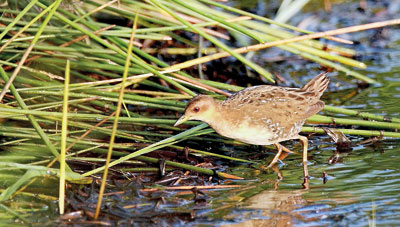
Save Kirala Kele, a cry from environmentalists

In December, a Baillon’s Crake a rare migratory bird to Sri Lanka was spotted in Kirala kele In December,
Kirala Kele in Sinhala means ‘forest of kirala trees- or a ‘mangrove forest’. It covers an area of 1,800 ha with 310 ha of it being designated a wetland located at the exit of the Southern expressway in Godagama about three km from Matara town.
In December, a Baillon’s Crake a rare migratory bird to Sri Lanka was spotted in Kirala kele. The bird was seen in a particular area of the wetland, and bird watchers flocked to the wetland to see this rare bird. Subsequently more rare migratory birds such as the grey-headed lapwing, turtle dove, comb duck, marsh and even the greater spotted eagle were sighted in a small stretch of the wetland.
Kirala Kele earlier came under the purview of the Southern Development Authority. It was deemed a sanctuary in 2003 and declared as a conserved area under the ‘Sri Lanka – picturesque sites programme’ by a special gazette notification. Kirala kele is made up of different types of wetlands – marshland, mangrove areas, paddy lands, and irrigation canals – as well as numerous home gardens as it borders populated villages. Several encroachments are visible in many areas and concerned environmentalists have brought to attention the urgent need to protect it.
Ruhuna University’s Prof.Saman Chandana Ediriweera who has been researching the biodiversity of Kirala Kele for several years says, ” the area is an ideal wetland habitat for many organisms and can be considered as one of the most valuable conserved areas in the Matara District.” According to a study conducted by IUCN Sri Lanka, 83 plant species, 25 species of fish and 13 mammal species including the endemic Purple-faced Leaf Monkey inhabit Kirala Kele. The study recorded 103 bird species of which 48 were wetland birds and with the recent sighting of rare birds the number would be higher, Prof. Ediriweera said.
He warned that recent human activities within the premises of sanctuary would prove harmful to the ecosystem. He identifies garbage dumping, removal of vegetation, hunting, spread of invasive weeds as major threats to the wetland. Prof. Ediriweera says authorities should take immediate steps to curb these threats and save Kirala Kele wetland.
As Kirala Keleis a protected area, and now in the absence of a Department of Wildlife Conservation (DWC) field office in Matara, it comes under the purview of the field office at Kalamatiya.
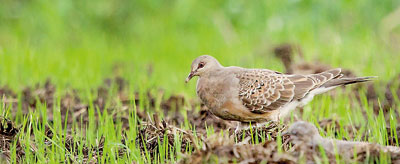
Meanwhile Kalamatiya wildlife ranger Uthpala Adaranga said they regularly visit the sanctuary, but as private lands can exist inside a ‘sanctuary’, they are powerless to stop activities within the sanctuary that could be inimical to its ecosystem. In addition Kalamatiya is located about 50km away from Matara, posing a difficulty to monitor this protected area regularly. Environmentalists in Matara have highlighted the need for a DWC office in Matara so that quick action could be taken when the need arose.
In addition to being an important habitat in 2010 a plan was initiated to promote Kirala Kele as a tourist attraction with World Tourism Day celebrations being held in Kirala Kele. But the drive to promote it as a tourist destination didn’t last long.
http://www.sundaytimes.lk/170205/news/save-kirala-kele-a-cry-from-environmentalists-227215.html
Sri Lanka launches tender to develop natural gas site in Mannar Basin
REUTERS: Sri Lanka has launched a tender to develop a gas block in the Mannar Basin off its northwest coast, vacated when Cairn India pulled out of an exploration project in 2015 as oil prices plunged.
Sri Lanka produces no oil and is dependent on imports but Cairn India Ltd discovered gas in the area in 2011. The government claims seismic data shows the potential for more than one billion barrels of oil under the sea in a 30,000 sq km area of the Mannar Basin.
It invited companies to undertake appraisal and development of gas discoveries and prospects in a 2,924 sq km offshore block in the basin, the Petroleum Resource Development Secretariat (PRDS) said on its website yesterday.
“The block will be offered for licensing this year, including the Barracuda and Dorado gas-condensate discoveries. A data package will be available containing well data and some 2,600 sq km of 3D seismic coverage,” it said. It also said the remaining blocks off Sri Lankan shores will be released via a bidding round in the fourth quarter of this year. London-based WesternGeco plans 2D and 3D spec surveys ahead of the bids off the east coast and in the Mannar Basin, while the government has planned some airborne surveying, the PRDS said.
Cairn India, which is now being taken over by Vedanta Ltd, said in 2011 that it struck a 25-metre hydrocarbon column showing primarily gas with “other liquid hydrocarbon potential” in the CLPL-Dorado-91H/1z wildcat well, drilled at a water depth of 1,354 metres (4,442 feet). It exited the project in 2015 after a nearly 50 percent drop in crude oil prices. Since the end of a 25-year civil war with Tamil separatists over seven years ago, Sri Lanka has tried to reinvigorate oil and gas exploration. Importing oil cost the island US $ 2.7 billion in 2015. From the mid-1960s to 1984 American and Russian companies explored the Cauvery Basin off the northern shore, but only traces of oil were found and no commercial oil was produced.
Source-14/02/2017-Dailymirror,See more at: http://www.dailymirror.lk/article/Sri-Lanka-launches-tender-to-develop-natural-gas-site-in-Mannar-Basin-123766.html#sthash.d6Inq1jY.dpuf
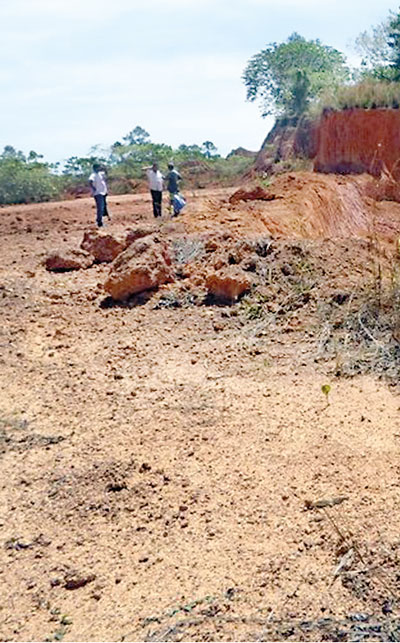
Akaragama soil mining: Permit holder vows to appeal ban
Two permits issued for soil mining at the controversial soil excavation site in Akaragama, Divulapitiya has been cancelled, Acting Director General of Geological Surveys and Mines Bureau, D Sajjana De Silva said. But, he said the permit holders can appeal within 14 days from the date of cancellation and the final decision will be taken by the Secretary of the Ministry of Environment.
The controversy over the site developed after Deputy Minister Ranjan Ramanayake visited the location and raised the issue over the misuse of permits. He also contacted the Divisional Secretary of the area and reprimanded her for not taking action.
Later the members of the Sri Lanka Administrative Service Association protested over allegations that Ramanayake had threatened the officer.
Soon after, permits were suspended by the GSMB. Later, investigation reports revealed that the two permit owners had violated regulations, De Silva explained. One of the license holders, H. S. A. D. Thusitha Nayanapriya said he will file an appeal on Monday.
Source-12/02/2017,The Sunday Times, See more at -http://www.sundaytimes.lk/170212/news/akaragama-soil-mining-permit-holder-vows-to-appeal-ban-228172.html
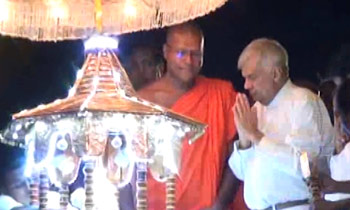
Govt. will not stop providing elephants for Peraheras: PM
The government will not stop providing elephants for Peraheras , Prime Minister Ranil Wickremesinghe said today.
Speaking during the final day’s opening of the annual Nawam Perahera of the Hunupitiya Gangararama Temple last evening, the Premier said President Maithirpala Sirisena and other relevant parties have discussed and decided on steps that should be taken to resolve the issues.
“Anyway the government will not stop providing elephants to Peraheras and has decided on safeguarding species which is becoming extinct speedily. Elephants are becoming extinct with the deforestation and urbanization,” he said
“There are many other issues such as illegal buying and selling of elephants,” he added. Further he said the government intended to expand the Pinnawala Elephant orphanage. “The government will soon reveal more details about steps it intends taking in resolving issues pertaining to illegal rearing of elephants and providing animals for Peraheras”, the Prime Minister further said.
The Prime Minister lauded the Chief Incumbent of Gangaramaya Temple Ven. Galboda Gnanissara Thera for organizing the Perahera which he said is a daunting task given the situation in the society. “It is a difficult task to find traditional dancers and others for the Perahera but the Venerable Thera had used his skills to find everything that is needed for the event,” he said.
Venerable Kirinde Assaji Thera announced that the Chief Incumbent of Gangaramaya will soon launch a programme to bring down a variety of paddy that can be cultivated with minimum amount of water to face the ongoing drought. (Yohan Perera)
Source-10/02/2017,Dailymirror,See more at: http://www.dailymirror.lk/article/Govt-will-not-stop-providing-elephants-for-Peraheras-PM-123656.html#sthash.uSyzxaeY.dpuf
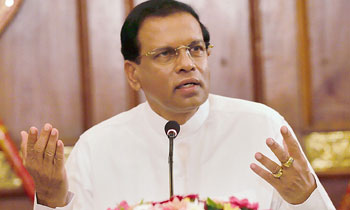
GSMB responsible for Gampaha excavation fiasco: President
 While claiming that the Geological Surveys and Mines Bureau (GSMB) should be held responsible at the controversial earth removing in Gampaha, President Maithripala Sirisena said today that the engineer and the other officials who authorised the particular licence should be interdicted, pending an inquiry.
While claiming that the Geological Surveys and Mines Bureau (GSMB) should be held responsible at the controversial earth removing in Gampaha, President Maithripala Sirisena said today that the engineer and the other officials who authorised the particular licence should be interdicted, pending an inquiry.
Attending an opening of the ‘Haritha Sihina’ educational and environmental exhibition held in Kurunegala, the President said that 60,000 cubes of earth had been removed from the particular place and transported to fill the Muthurajawela marshland.
“No one has noticed where the soil was being transported. Six months earlier State intelligence reported me that some villagers blaming me,” he said. He said that officials had not supervised if the permit holder was operating according the permit.
He said that it was GSMB officials under his purview had made the first mistake.“Over 20- years soil mining was done at the same place with the support of the State institution,” he said. (Thilanka Kanakarathna) –
Source-Dailymirror,12/02/2017,See more at: http://www.dailymirror.lk/article/GSMB-responsible-for-Gampaha-excavation-fiasco-President-123690.html#sthash.2SK86R0N.dpuf

Drought: Be prepared, warns WFP
Sri Lanka should be prepared to face challenges ahead, especially when it comes to food security, which would be brought on by the drought, World Food Program (WFP) Executive Director Ertharin Cousin said over the weekend.
According to the WFP, which quoted a research carried out by several agencies including the Irrigation Department and the Department of Census and Statics, Sri Lanka has currently felt only 50 percent of the effect of the prevailing drought.
“You have to get your resources in place if you are to face challenges which are ahead of you in the wake of the drought. Without resources you cannot ensure food security,” Ms. Cousin told journalists during her visit to Hambegamuwa in the Moneragala District. She also stressed for a joint effort of all stakeholders to ensure success. “I met Prime Minister Ranil Wickremesinghe in Davos earlier this year and he asked for WFP support to face the drought his country was going to face and I told him that we would support but the role of the Government and others would be important as one agency alone could not fulfill the task,” she said. She said she was pleased to see the work done in Sri Lanka, especially by the WFP.
The WFP has funded Rs. 6 million to put up a 15 km electricity fence and to grow thorny bushes such as Hana, Bougainvillea and lime to prevent elephants from destroying the lives and crops in Hambegamuwa.
There is a shortage of water for cultivation as a result of the focus on drinking water. The storage of water has declined in several districts. It has been revealed that water storage in the Anuradhapura District has declined to 27 percent of the full capacity, while it is 28 percent in Moneragala, 28 percent in Trincomalee, and 57 percent in Polonnaruwa, reports said.(Yohan Perera) –
Source-13/02/2017,Dailymirror.Seemoreat: http://www.dailymirror.lk/article/Drought-Be-prepared-warns-WFP-123702.html#sthash.MHsRJ3IJ.dpuf
Sri Lanka ramps up fuel imports as drought hits hydropower
REUTERS: Sri Lanka’s fuel imports in January jumped to double typical monthly levels, with the country rushing to plug an energy shortfall as severe drought hits its hydropower output, industry sources said. The South Asian nation is suffering its worst drought in over 40 years, dragging hydro’s share of Sri Lanka’s power mix to below 11 percent in 2016 from an annual average of about 35 percent, said Senthil Kumaran, senior oil analyst at energy consultancy FGE. “As a result, fuel oil and diesel consumption in thermal power plants increased, partly to offset the hydropower deficit,” Kumaran said. “High fuel oil imports should continue amidst range-bound crude prices.” Ceylon Petroleum Corp, the country’s state-owned oil importer, has been requesting bigger-than-usual volumes of diesel and fuel oil in the spot market, traders said. It has bought about 260,750 more barrels of diesel in January than December and around 260,000 more barrels of fuel oil, said a source close to the matter, speaking on condition of anonymity. Sri Lanka typically imports 26,000 to 32,000 barrels per day (
The South Asian nation is suffering its worst drought in over 40 years, dragging hydro’s share of Sri Lanka’s power mix to below 11 percent in 2016 from an annual average of about 35 percent, said Senthil Kumaran, senior oil analyst at energy consultancy FGE. “As a result, fuel oil and diesel consumption in thermal power plants increased, partly to offset the hydropower deficit,” Kumaran said. “High fuel oil imports should continue amidst range-bound crude prices.” Ceylon Petroleum Corp, the country’s state-owned oil importer, has been requesting bigger-than-usual volumes of diesel and fuel oil in the spot market, traders said. It has bought about 260,750 more barrels of diesel in January than December and around 260,000 more barrels of fuel oil, said a source close to the matter, speaking on condition of anonymity. Sri Lanka typically imports 26,000 to 32,000 barrels per day .
It has bought about 260,750 more barrels of diesel in January than December and around 260,000 more barrels of fuel oil, said a source close to the matter, speaking on condition of anonymity. Sri Lanka typically imports 26,000 to 32,000 barrels per day (bpd) of diesel and 6,000 to 10,000 bpd of fuel oil, Kumaran said. A delay in awarding term oil contracts also caused a spike in spot imports, traders said. “We have decided to increase imports of fuel oil mainly and more diesel as well because the Ceylon Electricity Board needs more for power generation,” a senior Ceylon Petroleum official said, declining to be named as he was not authorised to speak with the media. “(Ceylon Petroleum) is also going to maintain additional stocks of fuel and diesel due to the drought. So both these products will be maintained at more than required levels.” Sri Lanka’s fuel oil demand will likely grow by about 14 percent year-on-year (YoY) to 24,000
A delay in awarding term oil contracts also caused a spike in spot imports, traders said. “We have decided to increase imports of fuel oil mainly and more diesel as well because the Ceylon Electricity Board needs more for power generation,” a senior Ceylon Petroleum official said, declining to be named as he was not authorised to speak with the media. “(Ceylon Petroleum) is also going to maintain additional stocks of fuel and diesel due to the drought.
So both these products will be maintained at more than required levels.” Sri Lanka’s fuel oil demand will likely grow by about 14 percent year-on-year (YoY) to 24,000 bpd in 2017 and diesel demand will increase by 7 percent YoY to 53,000 bpd, FGE’s Kumaran said. An improving housing market, lower interest rates and government efforts to speed up infrastructure projects will keep supporting diesel demand in the next two or three years, Kumaran added.
Source 09/02/2017,dailymirror, See more at: http://www.dailymirror.lk/article/Sri-Lanka-ramps-up-fuel-imports-as-drought-hits-hydropower-123552.html#sthash.pkNtourZ.dpuf
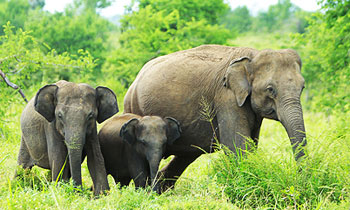
Laws to provide better conditions for captive elephants
The government has approved a draft of laws to regulate how elephants are kept, including banning the use of animals under the age of five for work, the Deutsche Welle (DW) reported yesterday.
It was reported that they had also ensured animals walk a minimum distance each day and get an improved diet of fresh fruit and vegetables. Authorities also announced Pinnawala orphanage, one of the country’s popular tourist attractions, will no longer place orphaned animals in zoos, aiming to avoid a repeat of the Auckland incident.
Sri Lanka’s Department of Wildlife Conservation did not to respond to DW’s request for an interview, but says the new measures will improve life for elephants in captivity, according to AFP.
“Conservationists hope it will provide better protection for elephants that were not covered under the country’s existing animal welfare legislation. Still, they worry that it may not be easy to enforce the laws due to a lack of will and the fear that prosecuting offenders would expose political connections,” it said.
The full article
Baby elephants have become the must-have status symbol for Sri Lanka’s wealthy. The government has introduced new laws to protect them. But conservationists believe more action is needed to end mistreatment.
Diplomatic gifts between countries can, like most presents, either be a fitting gesture or cause unintended controversy. The donation in 2015 of two baby elephants from the country’s Pinnawala orphanage by the Sri Lankan prime minister to his New Zealand counterpart very much falls into the latter category.
The seemingly innocent gift provoked so much outrage from animal rights’ groups in Sri Lanka that the move of one of the baby elephants – five-year-old Ninda – to Auckland Zoo was put on hold. Critics said it would be cruel to separate the animal from its herd at such a young age.
Both countries have now seen a change in leadership, but the episode is symbolic of a wider debate about a practice in Sri Lanka that has been criticized by animal welfare groups. That is the penchant of the wealthy classes for buying baby elephants rather than expensive watches and cars as status symbols.
“Many new rich families are attempting to improve their social status by having an elephant. The babies are never discarded when they grow up but are retained since they continue to be a status symbol,” Jayanthe Jayewardene, a Sri-Lanka based elephant expert and a managing trustee of the Biodiversity and Elephant Conservation Trust, told DW.
Conservationists say the desire for baby elephants presents problems for the animals on two fronts: welfare and diminishing wild populations.
Breaking in’ -Elephants can be found everywhere in Sri Lanka, from the sun-dappled beaches to its mountainous and lush interior. That’s partly because the species found in the country generally don’t have tusks and have largely been spared the global killing spree for ivory.
In marked contrast to countries such as Thailand, the wild population of an estimated 6,000-7,000 elephants heavily outweighs the captive one. Still, given the latter is officially only around 250, critics suspect animals are being plucked from the wild population, which is already under pressure due to habitat destruction and human-animal conflict, to supply the pet market. At least 40 elephants are believed to have been taken illegally in recent years. This is despite a ban on capturing wild animals in Sri Lanka.
Prithiviraj Fernando, a scientist and the chairman of the Sri Lankan-based Centre for Conservation and Research says another major problem with taking animals from the wild is that any domestication process will likely be cruel.
“Traditional domestication involves ‘breaking in’ the animal… In this process elephants are usually starved and beaten and then rewarded,” he told DW.
And given the close family bonds central to elephant life, the seized individuals are not the only ones to suffer.
“The relationship between mothers and babies are as strong as or even stronger than the bonding and relationships between human mothers and their babies,” Jayewardene says. “When the mother is separated from its baby, the mother suffers emotional stress and makes valiant efforts to reunite.
” The government wants to regulate how elephants are to be kept – one rules says that elephants younger than 5 years are not allowed to work.
Old habits die hard… Captive animals are often either kept in private homes, government-run orphanages or owned by masters known as ‘mahouts’ who rent them out for practices such as highly controversial tourist rides.
But the practice of taming elephants in Sri Lanka goes back much further than the current tastes of the newly rich. Pachyderms have been used in religious ceremonies for centuries and are often resident in Buddhist temples.
Still, the animal welfare advocates say that while elephants have been used for cultural and religious purposes and captivity for hundreds of years, the treatment of them is often poor. Shackling, for instance, is common practice.
“Tame elephants are kept in chains of varying lengths. However long the chain that shackles an elephant may be, it does not afford the freedom that an elephant needs,” Jayewardene says. “An elephant that lives in the wild walks around 15 kilometers a day.
” A series of confiscations and arrests made in 2016 included that of a Buddhist monk, whose high-profile trial underlined the mistreatment elephants are believed to suffer when kept for use in religious ceremonies. But even when they are treated well, the wild is a better option, say some.
“Just because an animal is kept in a certain way does not mean that way is good for their welfare,” Chris Draper, the associate director for animal welfare and care with the Born Free Foundation told DW.
More action needed… The government has approved a raft of laws to regulate how elephants are kept, including banning the use of animals under five for work, and ensuring animals walk a minimum distance each day and get an improved diet of fresh fruit and vegetables. Authorities also announced Pinnawala orphanage, one of the country’s popular tourist attractions, will no longer place orphaned animals in zoos, aiming to avoid a repeat of the Auckland incident.
Sri Lanka’s Department of Wildlife Conservation did not to respond to DW’s request for an interview, but says the new measures will improve life for elephants in captivity, according to AFP. Conservationists hope it will provide better protection for elephants that were not covered under the country’s existing animal welfare legislation. Still, they worry that it may not be easy to enforce the laws due to a lack of will and the fear that prosecuting offenders would expose political connections.
“No amount of legislation can prevent illegal activities if people are willing to break the law,” Prithiviraj Fernando says. “It is good to have significant penalties, but the more important thing is to impose them. One way around this is to have public oversight of captive elephants.
” Setting an example… The Elephant Transit Home in Udawalawe National Park is trying to set an example of how orphaned animals can be reintegrated to the wild. Unlike in other orphanages, animals are very rarely put into captivity. Instead, they are released into a large facility in the park, free of shackles and in social groups.
“How they [elephants] are kept can be changed quite drastically,” says Manori Gunawardena of Sri Lanka’s Born Free Foundation, which co-runs the home. “Instead of having solitary animals chained up all day, they should be kept in a social environment.”
Source-08/02/2017,dailymirror, See more at: http://www.dailymirror.lk/article/Laws-to-provide-better-conditions-for-captive-elephants-123496.html#sthash.tD9IAvFk.dpuf
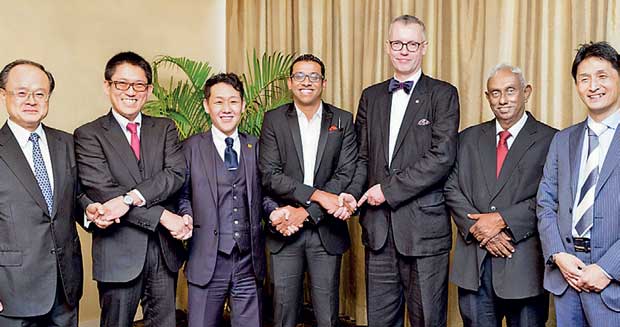
Japanese consortium to invest US $ 15mn in solar power plant
From left: Tokyo Kyodo Accounting Director Yoshikazu Noda, Shibatasyoji Co. Limited Director Tatsuhiro Shibata, Sawada Co. Director Hiroki Sawada, TAD Lanka Investments Director Atheeq Ansar, WQ Inc. Director Steffen Studeny, Sierra Holdings Director Frank Irugalbandara and Tokyo Kyodo Accounting Partner Ryutaro Uchiyama at the official signing ceremony.
A US $ 15 million project for the establishment of a solar power plant in Sri Lanka is underway with investments from three Japanese companies through a Japanese consortium.
The three companies—Shibatasyoji Co. Ltd, Sawada Co. Ltd and WQ Inc.—are renowned for their extensive expertise in establishing solar power plants in Japan. Shibatasyoji Co. Ltd and Sawada Co. Ltd are the main investors while WQ Inc. will be providing the main components to the project.
The Japanese experts have conducted a series of extensive research in this field, concluding that Sri Lanka is one of the most viable countries for solar power. In addition, the Sri Lankan government’s announcement in 2015 vesting its interest to establish a series of solar power plants in the country gave it the needed boost in laying the groundwork for this project.
The project is in partnership with TAD Lanka Investments (TAD), the local facilitating partner for the project, and Sierra Technology Holdings, a subsidiary company of Sierra Holdings, the local EPC partner for the project.
The official signing ceremony took place on February 3 between the Japanese consortium and the two local entities with the initial commitment of establishing a 10 MW solar power plant with an investment of US $ 10 million and an added pledge to invest US $ 150 million in 100 MW solar power plant in the future.
The decision for the pledge will depend on the success on this primary effort, which will be monitored closely. The target is to establish the project within a maximum time frame of 18 months, which depends entirely on the Sri Lankan government’s willingness to issue Standard Power Purchase Agreements to potential investors.
“This project will set the benchmark for future projects of this calibre in Sri Lanka paving the way to meet the impending power crisis and we are willing to give our unstinted support towards reaching success in this field,” remarked a representative of the Japanese consortium.
“TAD Lanka Investments is proud to be involved in this gigantic venture, which provides the country with stability and certain growth in the technology that promotes the usage of sustainable and renewable energy. It also addresses the crisis at hand, while opening variable opportunities for further investment to Sri Lanka in this area,” commented TAD Director/CEO Atheeq Ansar. TAD was founded in May 2016 for the main purpose of streamlining and safeguarding all types of foreign investments and investors channelled to Sri Lanka.
During its brief period of operation, TAD has in effect successfully streamlined many significant investments and continues to gain a reputation as a top-notch company among its ever-growing clientele.
This project is a welcome effort as experts predict Sri Lanka is to face a power crisis in 2018 due to the inability to cope with the high demand for power. Such projects are of vital importance to improving the stability and infrastructure of the country.
With the government focusing on securing more foreign direct investments to the country, encouraging such projects will benefit Sri Lanka in the long term and encourage more investors to follow suit. Therefore, the importance of this project and the pledge to invest more solely depends on the success of this premier project.
Source,07/02/2017,Dailymirror – See more at: http://www.dailymirror.lk/article/Japanese-consortium-to-invest-US-mn-in-solar-power-plant–123372.html#sthash.ar2MNpqa.dpuf
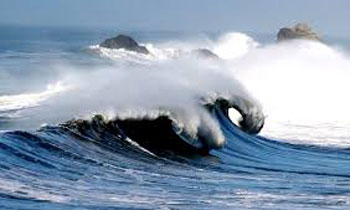
Sea wave electricity soon: Minister
The Power and Renewable Energy Ministry today said the Finnish Ambassador to Sri Lanka Rauli Suikkanen had agreed to provide the latest technology to generate electricity from sea waves to the country. He expressed this at a special discussion with Minister Ranjith Siyambalapitiya at the Ministry. “Our country is surrounded with sea and therefore we can generate electricity using sea waves easily. We can determine the capacity of electricity which can be generated. The projects can be launched with the latest technology with minimal cost. Therefore the electricity can be used during the dry seasons,” the minister said. (Chaturanga Pradeep) Source-08/02/2017,Dailymirror, See more
Source-07/02/2017,Dailymirror, See more at: http://www.dailymirror.lk/article/Sea-wave-electricity-soon-Minister-123443.html#sthash.oTnuSLqO.dpuf









